10 Signs Your Pet Has Officially Become the Master of the House
If you share your home with a pet, there’s a good chance you’ve slowly surrendered control, and all it probably took was one cuddle, meow, or tail wag. What starts as a few minor compromises often ends with your furry companion running the show while you just provide food, shelter, and endless affection. Here are some signs that suggest your pet is in charge of the house.
Mealtime Revolves Around Them

Credit: iStockphoto
When your pet starts pacing, pawing, or giving you the “it’s time” stare, even when the clock says otherwise, you adjust. According to the American Kennel Club, dogs thrive on routines, and many owners unconsciously adapt theirs to match their pet’s preferences. If you’re delaying your dinner so they can eat first or heating their meals to the “perfect” temperature, you’re the staff.
Your Bed Isn’t Yours Anymore
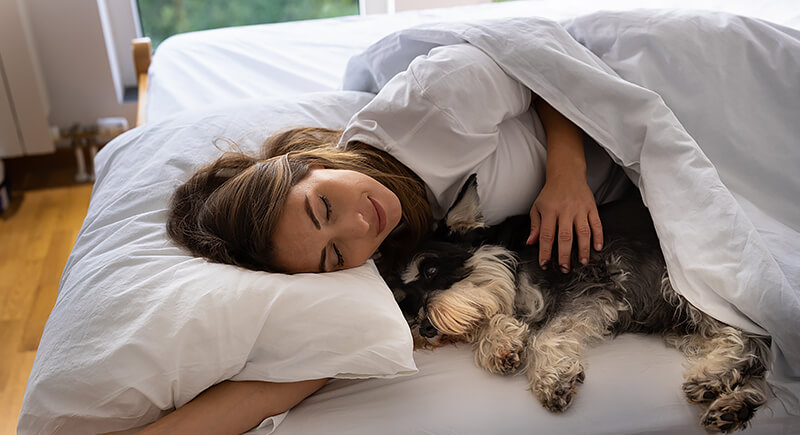
Credit: iStockphoto
Once your pet claims your bed, sleeping arrangements change. A 2022 PetMD survey found 43% of pet parents let their dog or cat sleep with them. If you’ve ever woken up on the edge of the mattress while your pet stretches out luxuriously in the center, that’s not co-sleeping. Bonus points if you stay still so you don’t disturb them.
You Watch What They Want (Sort Of)

Credit: iStockphoto
Movie night doesn’t always go smoothly when a pet is around. Dogs may bark at animals on screen, while cats may sit directly in front of the TV. Some even demand play breaks during the climax of your favorite show. If you find yourself pausing for their bathroom break or waiting for them to settle before hitting play, they are the boss.
The Furniture Belongs to Them

Credit: Getty Images
Your once pet-free couch is now covered in fur, blankets, and toys. Pets tend to claim favorite spots and give you a look if you’re in it. Some even “herd” you to the edge or wait for you to vacate it.
They Wake You Before the Alarm Does

Credit: iStockphoto
Most pet owners don’t need an alarm clock. Cats and dogs tend to wake their humans well before sunrise, using anything from a cold nose to a sharp bark. It’s not just habit. Research in the Journal of Veterinary Behavior shows that pets often line up their sleep and wake cycles with the people in their homes. Once that pattern is set, they stick to it and expect you to do the same.
Your Home Decor Has Gone Pet-Friendly
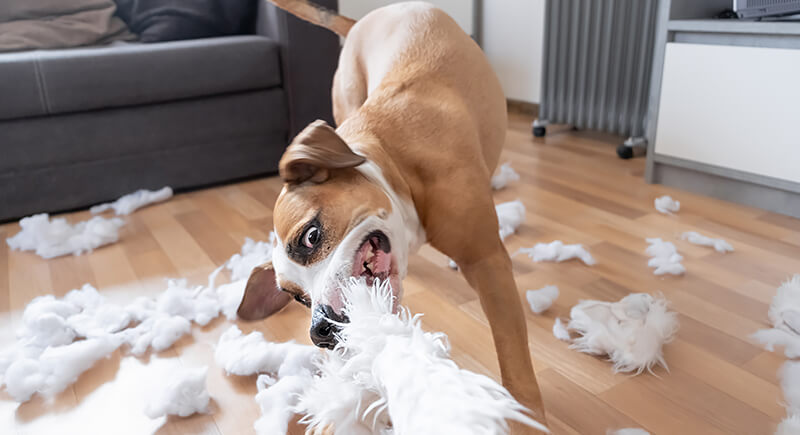
Credit: iStockphoto
You might have had aesthetic goals once (read: succulents, bookshelves, delicate rugs), but now everything is pet-proofed or rearranged to avoid destruction. If your furniture was chosen with their comfort in mind, and you’ve removed breakables to make room for a climbing cat or zoomy dog, then yes, your interior design priorities have shifted to accommodate your furry overlord.
You Move Around Them, Not the Other Way Around

Credit: iStockphoto
Stepping over a sleeping dog or waiting to stand up because a cat is curled in your lap is more common than you’d think. Many pet owners admit they won’t disturb their animals, even if it means discomfort. This behavior, while sweet, is a clear sign you’ve been trained.
They Decide When You’re Done Working

Credit: iStockphoto
When your pet shows up in your workspace, it’s deliberate. Dogs nudge your arm, cats stretch out on your keyboard, and both know exactly how to pull focus when you’re mid-task. These interruptions may feel disruptive, but studies suggest pets often respond to emotional cues and stress. In other words, they might be offering support—or just making sure they’re not left out.
Toys Are Everywhere (And That’s Just How It Is)
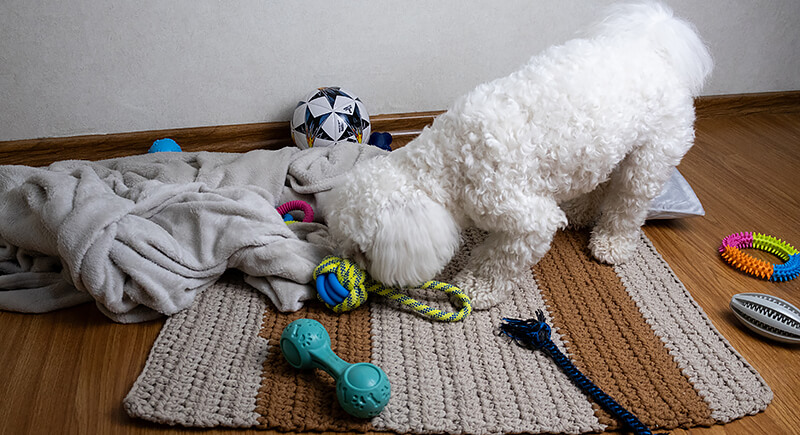
Credit: iStockphoto
Finding squeaky toys under the couch, feathers in the hallway, or a rubber ball in your shoe is normal when your pet runs the place. Dogs and cats alike enjoy spreading their favorite items throughout their territory. If you’re constantly cleaning up after them and they keep redecorating, you’ve become the housekeeper in their personal playroom.
They Dictate Bathroom Privacy
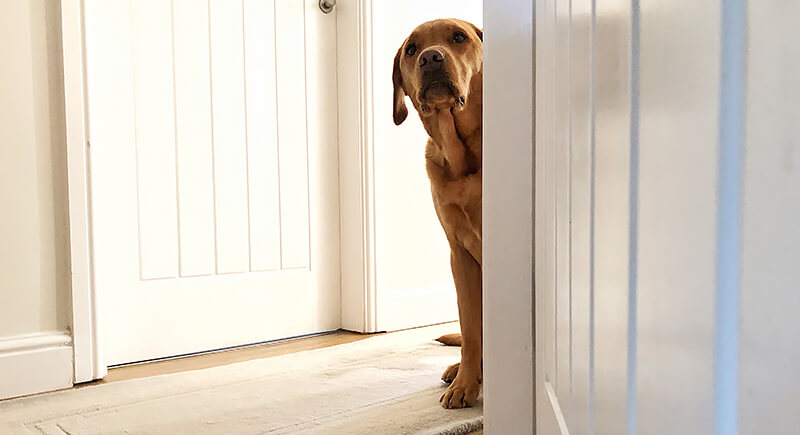
Credit: iStockphoto
Privacy in the bathroom is a thing of the past. Some pets scratch at the door, some sneak in and watch you like it’s a performance, and others simply sit on your feet. According to experts, this stems from their pack mentality; they just want to be near you. But if you’re used to explaining yourself to a cat while brushing your teeth, they’ve clearly claimed that space too.
You Apologize for Inconveniencing Them
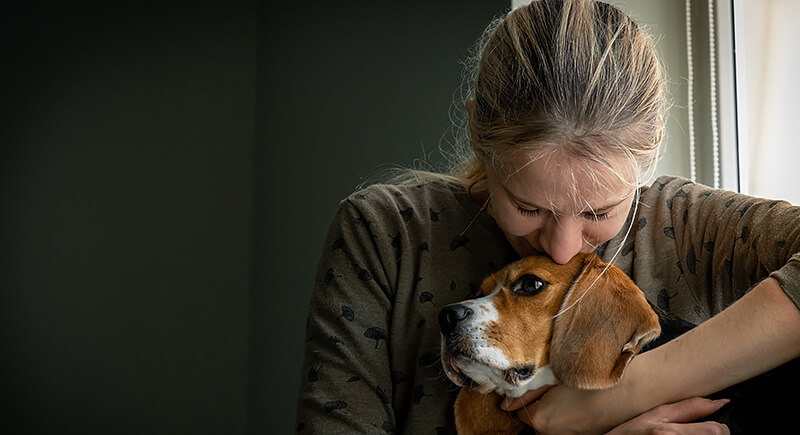
Credit: iStockphoto
Ever whispered “sorry” for moving a sleeping pet or gently repositioned them to avoid waking them? That’s submission in action. Many pet owners go out of their way to avoid bothering their animals, which only strengthens the dynamic. If you hesitate to stand up because a cat chose your lap, the power balance has shifted.
You React to the Softest Sounds They Make
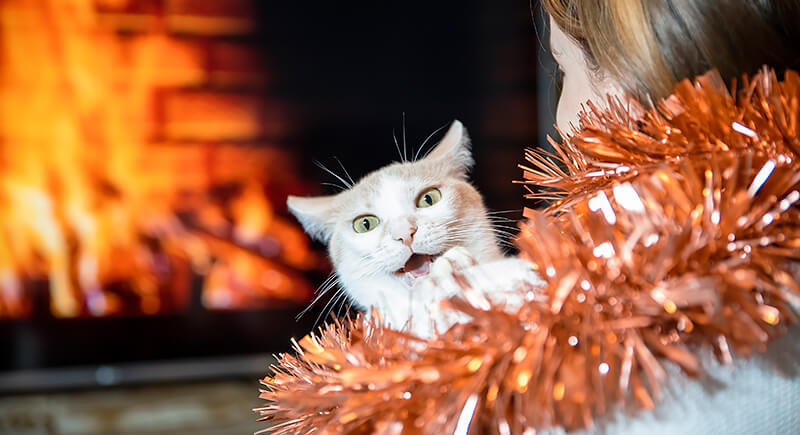
Credit: iStockphoto
A tiny whine or a single meow can summon you from another room. Pets are great at training their humans to respond. If you find yourself rushing to check on them every time they vocalize, even when it’s not urgent, you’ve become highly responsive to their cues. That behavior builds over time, and before you know it, they have a built-in concierge.
You’re Furniture Now
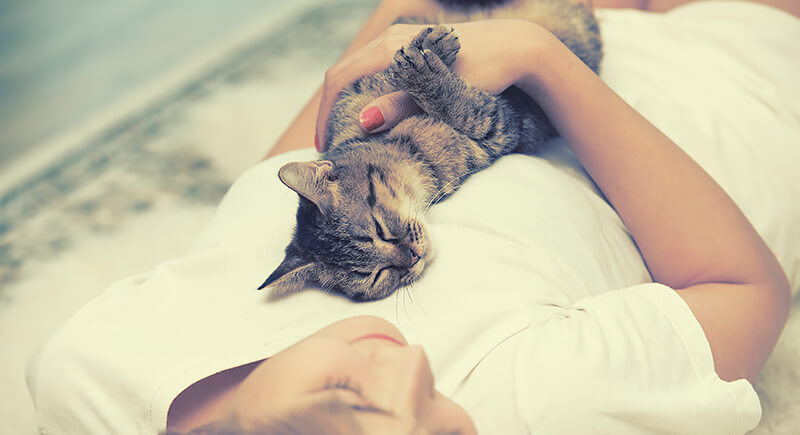
Credit: iStockphoto
Sometimes it’s not about the couch or bed. You are the preferred lounging surface. Cats will perch on your chest during TV time, and dogs will curl up on your feet no matter where you are. It’s endearing, sure, but it’s also a claim. According to the ASPCA, these behaviors reinforce bonding and territory.
They Expect You to Supervise Basic Tasks
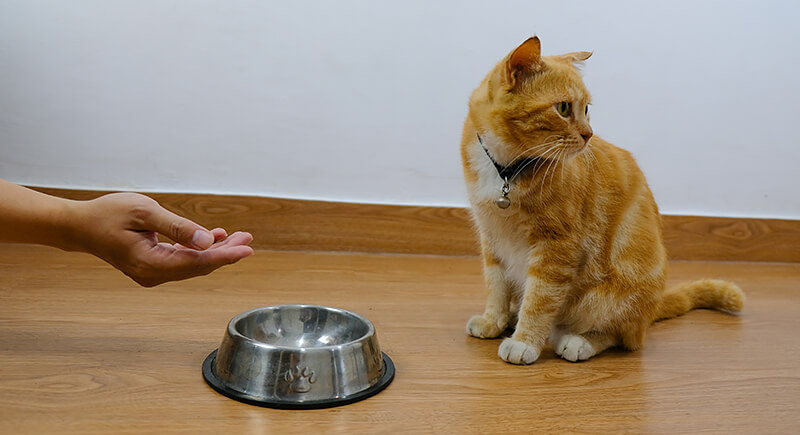
Credit: iStockphoto
If your cat refuses to eat unless you’re nearby or your dog won’t go outside alone, they might be relying on your presence a bit too much. Some pets, especially anxious ones, seek safety in supervision. But if your daily tasks include standing guard while they eat or use the litter box, they’ve come to expect a personal assistant.
You’ve Learned to Speak Their Language
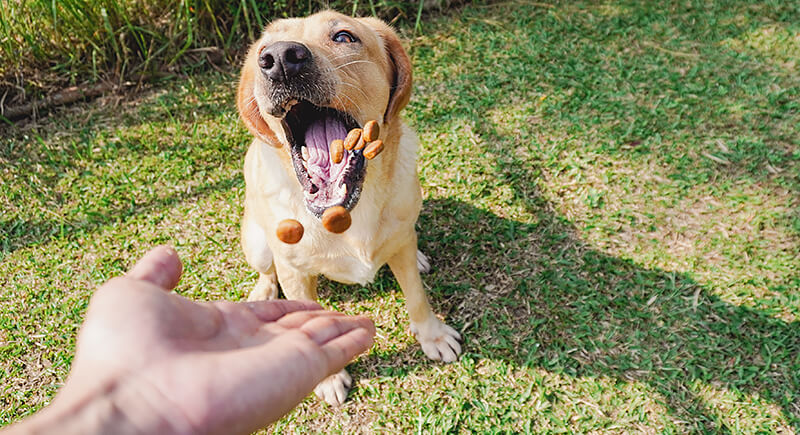
Credit: iStockphoto
Most pet parents recognize the difference between a hungry bark and a playful growl, or between a cat’s “feed me” meow and their “leave me alone” meow. This fluency doesn’t happen overnight. It’s a learned skill, and if you’ve mastered it, you’ve done so for one reason: to meet their needs more efficiently. When you’ve adapted to their communication style, it’s safe to say they’re calling the shots.